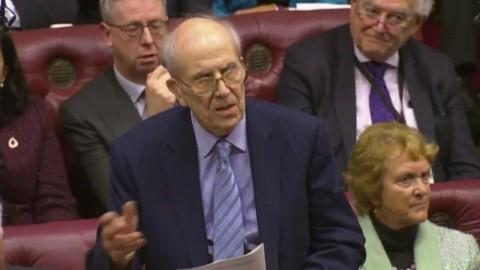Seriously, who uses the word ‘foreigners’ as a brush reference to the diverse nationalities living in and beyond the borders of the UK? This word surely is a relic? Something from the past?
Sitting on my perch last night in my normal nightly semi-comatose state after a hard day's work in front of the TV, I was aroused from my stupor by the following reaction of Norman Tebbit when discussing the right of EU nationals to remain in the UK post Brexit:
“Somehow or the other, today we seem to be thinking of nothing other than the rights of foreigners”.
I was almost catapulted from my seat when he said this and had to stop myself shouting at the TV. He then proceeded to say:
“My lords, people of nationalities of other countries within the union are foreigners”.
Lord Tebbit was relentlessly jeered and very few tolerated this incomprehensible reference; an extreme perception of ‘us and them’ and not reminiscent of how people live their lives in the modern global age.
I sat bemused. I didn’t feel anger at the comments; shock would be more appropriate.
I live in a world of diversity in which I have peers, friends, neighbours, international colleagues all of whom are of both British and international descent. They may be completely assimilated into the British culture by way of language and cultural practice, they may be bi / tri cultural, or, their own culture may dominate but what does this matter?
Where I, and I believe a huge number of my British peers would clash with someone of Norman Tebbit’s persuasion, is that we wouldn’t refer to our international / intercultural networks as ‘foreigners’. We wouldn't refer to any group of people as 'foreigners'.
They may be Italian, they may be Korean, Japanese, Spanish, Australian, Turkish, American or French, for example, but they are not to be fudged into a single group and labelled as ‘foreigners’.
I spent time thinking about this. Am I out of order in being so affronted by this seemingly bigoted assertion?
No, I don’t think I am. I am also heartened that our younger generations typically don’t think in this way. They have had greater opportunities for intercultural experience than any other preceding generations. Not only are they fortunate enough to have access to some of the most incredible travel and geographical programmes which celebrate the diverse lives of our international neighbours, but they also have on tap international / intercultural exposure via the internet. Although we are surrounded by a force of people trying to reign our borders back in, most of our younger generations have grown up in a far less border driven mindset and environment.
Let’s be honest, what benefit does that word 'foreigner' bring? What value can it have when trying to discuss or analyse a situation? Espcecially around issues like immigration, diversity, identity, rights and belonging. Surely this term becomes increasingly redundant, a shadow of a the black and white past, an old, out-date mode of thinking that has no relevance anymore?
As politics gradually sees the influence of the younger generations, then I truly hope that the word ‘foreigner’ will cease to be used in the same way that it was used by people of Norman Tebbit’s world-view.
Norman, if you read this blog, then we would love to give you free intercultural training with one of our best trainers (if you like, we can even make sure he/she's not one of those 'foreigners'). Give us your mind Norman, let us open it up to the new world!
